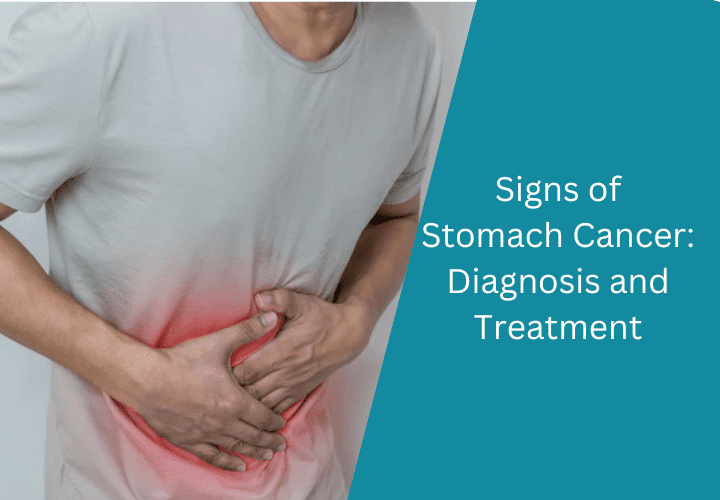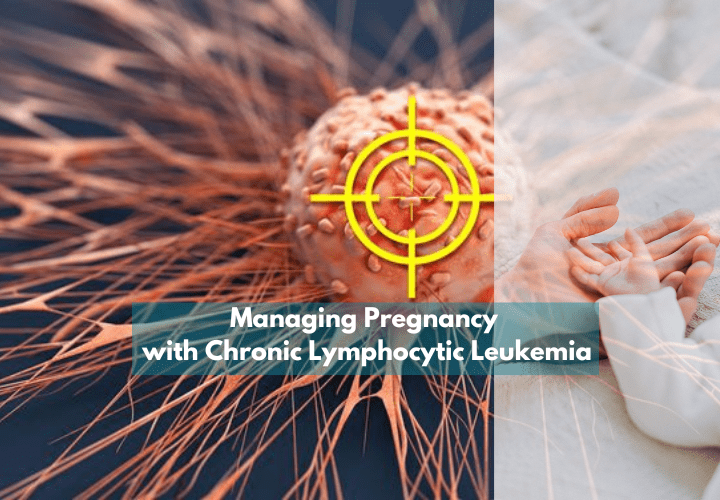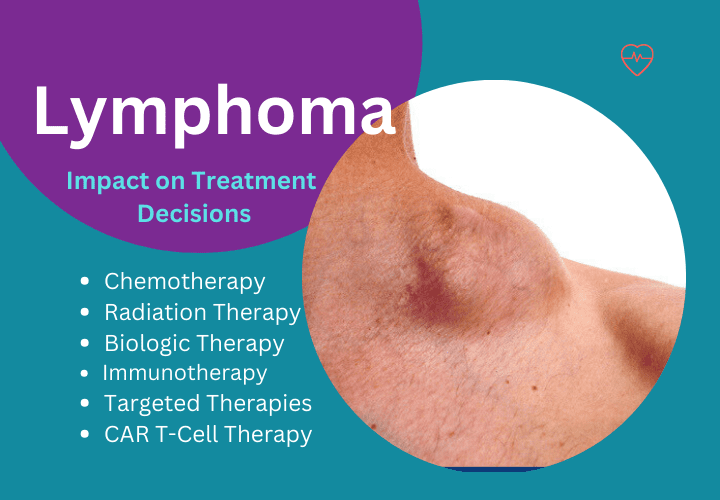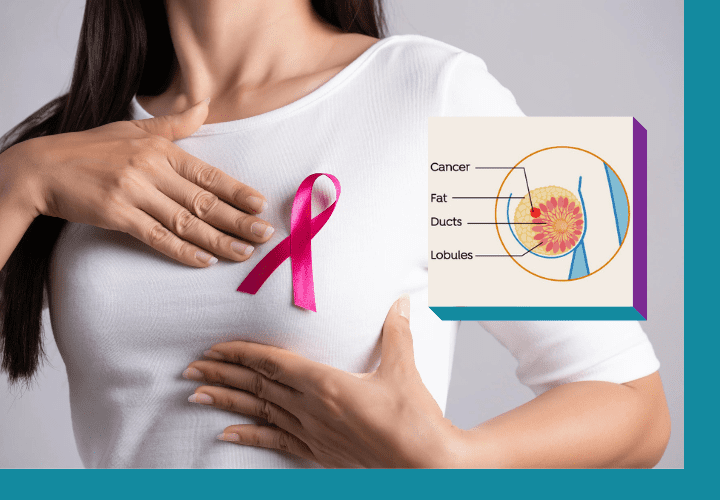Signs of Stomach Cancer: Diagnosis and Treatment

Signs of Stomach Cancer: Diagnosis and Treatment
- onco
- April 18, 2024
Stomach cancer, also known as gastric cancer, is a serious condition that develops in the lining of the stomach. While it is relatively less common compared to other cancers, recognizing the signs and symptoms early is crucial for timely diagnosis and effective treatment. In this comprehensive guide, we’ll delve into the signs of stomach cancer, diagnostic methods used by healthcare professionals, and the various treatment options available to those diagnosed with this condition.
Signs and Symptoms of Stomach Cancer
Stomach cancer can present with a variety of symptoms, many of which may initially seem mild or unrelated. However, it’s important to pay attention to any changes in your body and seek medical evaluation if you experience the following:
- Persistent Indigestion: Chronic indigestion, characterized by discomfort or a burning sensation in the upper abdomen after eating, can be an early sign of stomach cancer.
- Unexplained Weight Loss: Significant and unintentional weight loss, not attributable to changes in diet or exercise, may signal an underlying health issue such as stomach cancer.
- Abdominal Pain: Persistent or recurrent abdominal pain, particularly in the upper abdomen, may indicate the presence of a tumor in the stomach.
- Loss of Appetite: A sudden decrease in appetite or feeling full quickly even after consuming small amounts of food could be a symptom of stomach cancer.
- Nausea and Vomiting: Frequent nausea and vomiting, sometimes with blood or a coffee ground-like appearance, should not be ignored and warrant medical attention.
- Difficulty Swallowing: Dysphagia or difficulty swallowing, along with a sensation of food getting stuck in the throat or chest, can be associated with advanced stomach cancer.
It’s important to note that these symptoms can be caused by various other conditions as well. However, if you experience any of these symptoms persistently, especially if they are new or unusual for you, consult your healthcare provider for further evaluation.
Diagnostic Procedures
When stomach cancer is suspected based on symptoms and physical examination, your doctor may recommend the following diagnostic procedures to confirm the diagnosis and determine the extent of the cancer:
- Endoscopy: This procedure involves inserting a thin, flexible tube with a camera (endoscope) through the mouth into the stomach. The doctor can visualize the inside of the stomach and take tissue samples (biopsies) from suspicious areas for further analysis.
- Imaging Tests: CT scans, MRI scans, or PET scans may be ordered to obtain detailed images of the stomach and surrounding tissues. These scans help assess the size and location of the tumor and identify any spread to nearby lymph nodes or distant organs.
- Biopsy: Tissue samples obtained during endoscopy or surgery are examined under a microscope by a pathologist to confirm the presence of cancer cells. Biopsy results also provide important information about the type and stage of stomach cancer.
Treatment Options
Treatment for stomach cancer depends on several factors, including the stage of cancer, the location and size of the tumor, and the overall health of the patient. The main treatment modalities for stomach cancer include:
- Surgery: Surgical removal of the cancerous part of the stomach (partial gastrectomy) or the entire stomach (total gastrectomy) may be recommended, especially for early-stage stomach cancer. In some cases, nearby lymph nodes may also be removed during surgery to check for cancer spread.
- Chemotherapy: Chemotherapy involves the use of powerful medications (anticancer drugs) to destroy cancer cells or shrink tumors before surgery (neoadjuvant chemotherapy) or after surgery (adjuvant chemotherapy). Chemotherapy may also be used as the primary treatment for advanced or metastatic stomach cancer.
- Radiation Therapy: Radiation therapy uses high-energy rays (such as X-rays or protons) to target and kill cancer cells or relieve symptoms such as pain or bleeding. It is often used in combination with surgery and/or chemotherapy for certain types of stomach cancer.
- Targeted Therapy: Targeted therapy drugs are designed to specifically target cancer cells’ vulnerabilities, such as blocking the action of specific proteins involved in cancer growth. Targeted therapy may be used in cases where stomach cancer has specific genetic mutations or is resistant to other treatments.
Read More Blog: HIPEC – An Advanced Chemotherapy Treatment To Destroy Cancer Cells
Conclusion
If you suspect you may have symptoms of stomach cancer or have been diagnosed with this condition, it’s important to take proactive steps to seek medical attention promptly. Early detection and treatment significantly improve outcomes for individuals diagnosed with stomach cancer. Remember, each person’s journey with stomach cancer is unique, and treatment plans should be tailored to individual needs and preferences.
Consult with a multidisciplinary team of healthcare professionals, including oncologists, surgeons, gastroenterologists, and supportive care specialists, to develop a comprehensive treatment plan that addresses your specific situation. Participate actively in your care, ask questions, and seek support from family members, friends, or cancer support groups to navigate this challenging time.
By raising awareness about the signs of stomach cancer and advocating for timely diagnosis and treatment, we can contribute to better outcomes and improved quality of life for individuals affected by this disease.
If you have any concerns or questions about stomach cancer or need support, don’t hesitate to reach out to your healthcare provider. Together, we can make strides in combating stomach cancer and improving patient outcomes.
Recent Posts
-
Managing Pregnancy with Chronic Lymphocytic Leukemia
April 30, 2024
-
Signs of Stomach Cancer: Diagnosis and Treatment
April 18, 2024




Leave a Reply